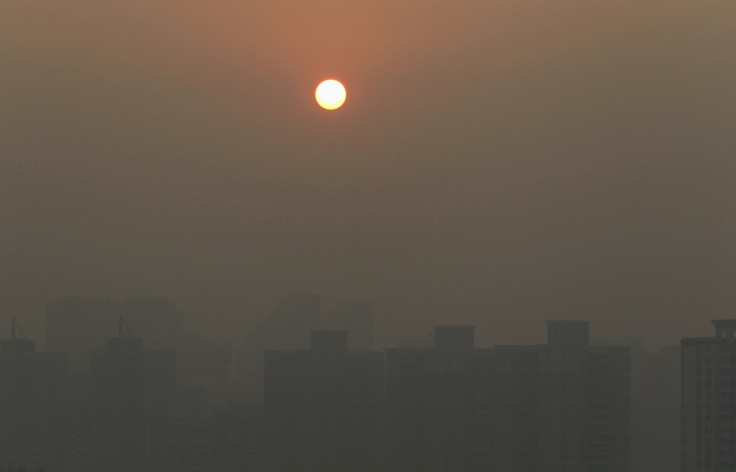Panasonic Offers Employees Extra Compensation For 'Hardship Posting' In China Because Of Hazardous Air Pollution

War-torn countries, violent rebellions, volatile governments: That's what comes to mind when thinking of a “hardship posting.” But not when one thinks of China. The People's Republic is not at war (at least, not yet); what little rebellion there might be is confined to the Western region of Xinjiang; and its government is, if anything, obsessed with stability. So why has Panasonic, the Osaka, Japan-based electronics company, classified China as a “hardship posting"? Toxic air pollution.
Panasonic Corp. (TYO:6752) has become the first international company to offer generous compensation to employees assigned to China because the dangerously high levels of pollution residents endure. The electronics group announced the changes to employee benefit packages for China employees, citing high levels of PM2.5, a dangerous air particulate, in many of China’s biggest cities.
According to the AFP, in the past, Panasonic’s China employees have typically received more generous compensation than those elsewhere, but toxic air pollution levels have never been disclosed as the reason behind that, until now. Panasonic did not disclose the number of employees who will be receiving the extra benefits or the amount, but did confirm it was only available to foreign employees relocated there, and not Chinese hires.
It has become increasingly common for foreign companies to increase benefits and compensation for employees relocated to China to give an added incentive, but most have done so discreetly. Panasonic is the first to acknowledge an open correlation to China’s rampant air pollution problems.
Chinese authorities themselves seem to agree with the idea of pollution compensation. According to the local Beijing News, one Beijing official has called for a “smog subsidy” for those who work outdoors.
Xie Chaohua, a member of Beijing’s municipal government, reportedly made a statement focused on “protecting lungs from the impact of smog" during the ongoing Communist Party Central Committee sessions. Xie proposed that the government protect those exposed to the worst of the air pollution, like construction workers, sanitation workers, traffic police officers, and couriers. Xie said that the so-called smog subsidy would allow workers to purchase necessary “quality lung protection products,” like “lung-moistening medicines.” Such medicines have been shown in studies to reduce respiratory tract inflammation that can be triggered by exposure to smog.
In addition to the subsidy, Xie suggested that a “smog holiday” system be put in place for those who work in outdoor environments.
Dealing with pollution continues to be one of China’s top priorities. At the beginning of the government’s annual parliamentary meetings in Beijing last week, Premier Li Keqiang said that authorities were waging a “war on pollution.” The war, however, needs to be fought hard. Only days later, China’s state-run news outlet Xinhua reported that out of 74 of China’s major cities, only three met the national air quality standards.
© Copyright IBTimes 2024. All rights reserved.





















